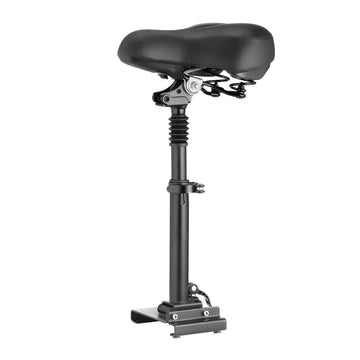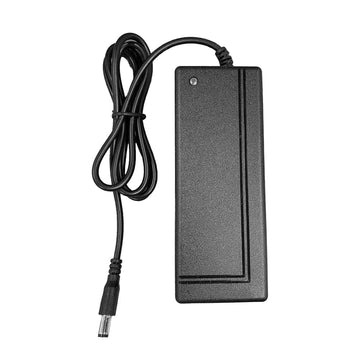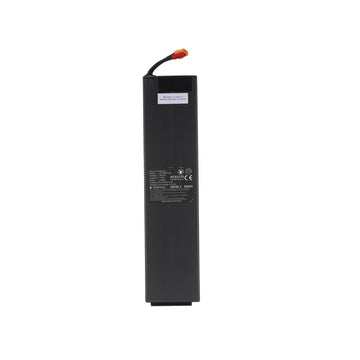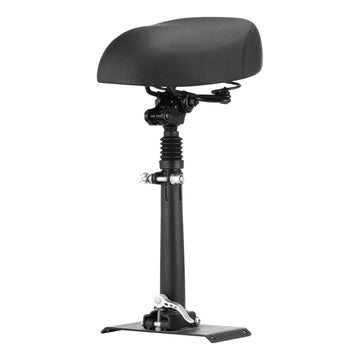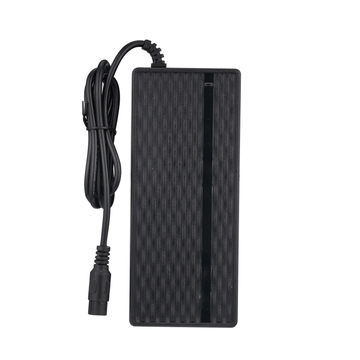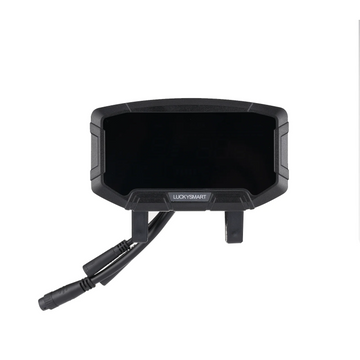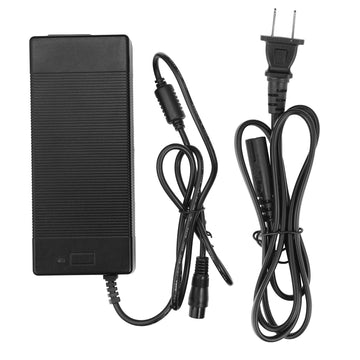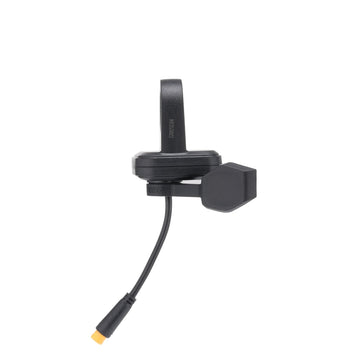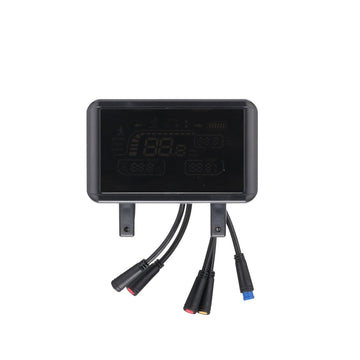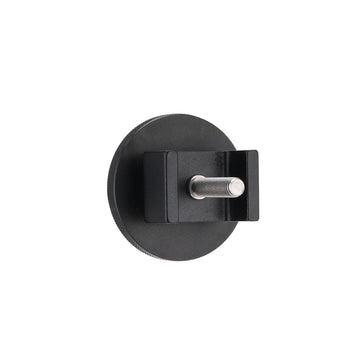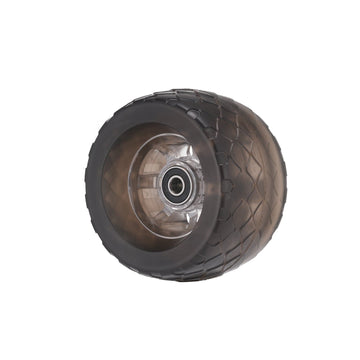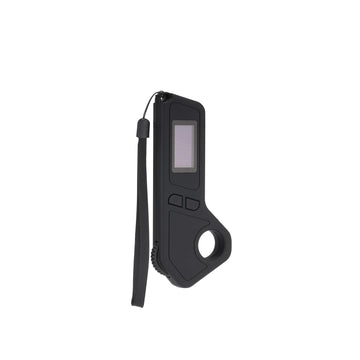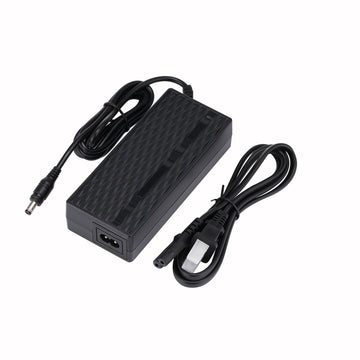Are Electric Scooters Street Legal? Traffic Rules for E-Scooters
by iza singson on May 27, 2024
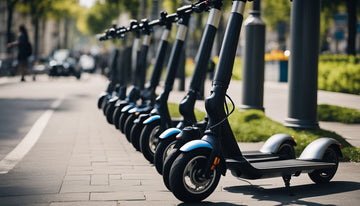
Electric scooters are becoming a common sight in cities, but are electric scooters street legal? It can be tricky because the rules for e-scooters are different in every city.
If you've got an electric scooter or are thinking about getting one, it's pretty important to know what you can and can't do with it when you're out and about.
As towns and cities figure out the best way to fit electric scooters into the mix with cars, bikes, and walkers, it's up to scooter riders to keep up with the latest rules.
Knowing the do's and don'ts helps everyone stay safe and avoids any run-ins with the law. So, identify everything you need to know to keep your e-scooter rides fun, safe, and on the right side of the law.
Are Electric Scooters Street Legal in the United States?
So many people are wondering whether electric scooters are street legal in the US. The answer is not straightforward, as the legality and regulations of electric scooters vary depending on the location and specific laws. In this section, we will explore the federal and state laws, as well as local ordinances and regulations that govern electric scooters in the US.
Federal and State Laws
Currently, there are no federal laws that specifically address electric scooters. However, some states have enacted legislation that regulates the use of electric scooters.
For example, many states require riders to wear helmets, and some states have age restrictions for riders. In most states, riders must be at least 16 years old to operate an electric scooter legally. Some states may also require parental consent for riders under a certain age.
Additionally, some states require that electric scooters be registered and insured, while others do not. It is important to check your state's specific laws regarding electric scooters before riding one.
Local Ordinances and Regulations
In addition to state laws, local ordinances and regulations may also regulate the use of electric scooters. Cities and towns may have their own laws regarding where electric scooters can be ridden, how fast they can go, and whether they can be ridden on sidewalks or bike lanes. Some cities may require that electric scooter companies obtain permits before operating in the area.
Safety Standards and Requirements
When it comes to electric scooters, safety is a top priority. As such, there are certain safety standards and requirements that must be met for these vehicles to be considered street legal. In this section, we will discuss some of the most important safety guidelines that you should be aware of.
Helmet and Equipment Regulations
One of the most important safety requirements for electric scooter riders is the use of proper safety equipment. This includes a helmet, which is mandatory in many states. In fact, some states require riders to wear helmets regardless of their age, while others only require helmets for riders under a certain age.
In addition to helmets, many states also require other safety equipment, such as reflective clothing or lights for nighttime riding. It is important to check the regulations in your state to ensure that you are in compliance with all of the necessary safety requirements.
Age and Weight Restrictions
Another important safety consideration for electric scooter riders is age and weight restrictions. In most states, riders must be at least 16 years old to operate an electric scooter on public roads. Some states have even stricter age requirements, with a minimum age of 18 or 21.
Weight restrictions are also common, with many states setting a maximum weight limit for electric scooter riders. This is typically around 220 pounds, but can vary depending on the state.
Operation and Usage

When operating an electric scooter on public roads, bike lanes, and sidewalks, there are certain rules and regulations that you must follow to ensure your safety and the safety of others around you. In this section, we will go over some of the guidelines you should keep in mind while riding your electric scooter.
Riding on Public Roads and Bike Lanes
In most states, electric scooters are classified as "motorized foot scooters" and are subject to the same traffic laws as bicycles.
This means that you should ride your electric scooter on the right side of the road, obey all traffic signals and signs, and use hand signals when turning or changing lanes. You should also be aware of the speed limit on public roads and bike lanes, which is typically around 15-20 mph.
It's important to note that not all roads and bike lanes are suitable for electric scooter usage. Some roads may have a higher speed limit, making it unsafe for electric scooters.
Additionally, some bike lanes may be too narrow or have obstacles that make it difficult to ride an electric scooter safely. Always use your best judgement and follow local regulations when deciding where to ride your electric scooter.
Sidewalk Usage and Pedestrian Safety
In many areas, riding an electric scooter on sidewalks is prohibited or restricted to certain areas. When riding on a sidewalk, you should always yield to pedestrians and give them plenty of space to pass. You should also be aware of your surroundings and avoid riding at high speeds or performing tricks that could endanger others.
If you are riding your electric scooter on a sidewalk, be sure to keep an eye out for obstacles such as curbs, poles, and other pedestrians. It's also a good idea to wear a helmet and other protective gear to reduce the risk of injury in case of an accident.
Licensing and Registration
When it comes to licensing requirements for electric scooter riders, the laws vary depending on the state. In some states, such as Ohio, there are no restrictions on licenses, registrations, or insurance. However, in other states, you may need a driver's license or a special permit to operate an electric scooter on public roads.
It is important to check with your state's Department of Motor Vehicles to see what the specific requirements are for electric scooter riders. In some cases, you may need to take a written test or complete a safety course before you can legally ride an electric scooter on public roads.
Vehicle Registration and Insurance
In most states, electric scooters do not need to be registered or insured. However, it's important to check with your state's DMV to see what the specific requirements are. Some states may require you to register your electric scooter and obtain liability insurance before you can legally ride it on public roads.
If you are required to register your electric scooter, you will need to provide proof of ownership and pay a registration fee. The fee may vary depending on the state, but it is typically less than what you would pay to register a motor vehicle.
When it comes to insurance, some states require electric scooter riders to have liability insurance in case they are involved in an accident. However, many electric scooter riders rely on their homeowner's or renter's insurance to cover any damages or injuries that may occur while riding their scooter.
Technical Specifications and Compliance
If you're considering purchasing an electric scooter, it's important to understand the technical specifications and compliance requirements that come with owning one. In this section, we'll cover the design and performance standards that electric scooters must meet to be considered street legal, as well as the speed and motor regulations that are typically enforced.
Design and Performance Standards
To be considered street legal, electric scooters must meet certain design and performance standards. This includes having functioning brakes, headlights, taillights, and turn signals. The scooter must also be equipped with a horn or bell, and a rear-view mirror. Additionally, the scooter must have a maximum weight limit and be able to support the weight of the rider.
Speed and Motor Regulations
Speed and motor regulations vary depending on the state or country you're in. In some areas, electric scooters are limited to a certain speed limit, usually around 15-20 mph. In other areas, there may be no speed limit at all. It's important to research the specific regulations in your area to ensure that your electric scooter is compliant.
In terms of motor regulations, electric scooters must have a motor that meets the power limit set by the state or country. In some places, electric scooters are classified as electric bicycles, which means they must have a motor that is 750 watts or less. Additionally, electric scooters must comply with federal, state, and local regulations, which may cover aspects such as licensing, age requirements, and use of helmets.
Conclusion: Are Electric Scooters Street Legal?
The key to enjoying your electric scooter and staying legal is to keep up-to-date with your local traffic laws. Since the rules can change and vary from place to place, it's a good idea to do a quick check of your city's regulations before you head out. Remember, staying informed not only keeps you out of trouble but also helps keep everyone on the road safe.
Whether you're a seasoned rider or new to the world of e-scooters, being aware of the legal landscape is an essential part of the electric scooter experience. Ready to find an e-scooter that's the right fit for you and complies with the law? Take a look at our diverse collection where you can choose the perfect scooter to match your lifestyle and keep you rolling smoothly and legally.
Find your street-legal electric scooter here and join the e-scooter revolution!
Frequently Asked Questions
Do we need a license for an electric scooter in the USA?
The answer to this question depends on the state you live in. In some states, you may need a driver's license or a special permit to ride an electric scooter on public roads. However, in many states, you do not need a license or permit as long as you follow the rules and regulations for electric scooters.
What are the rules for electric scooters in the US?
The rules for electric scooters in the US vary by state and city. Some common rules include a maximum speed limit of 15-20 mph, a minimum age requirement of 16 years old, and a requirement to wear a helmet while riding. It's important to check the rules and regulations in your specific area before riding an electric scooter.
Should you wear a helmet on an electric scooter?
Yes, it is recommended to wear a helmet while riding an electric scooter. While it may not be required by law in all areas, wearing a helmet can help protect you in case of an accident or fall.
Are electric scooters safe?
Like any mode of transportation, electric scooters come with some risks. However, when ridden responsibly and in accordance with the rules and regulations, electric scooters can be a safe and efficient way to get around. It's important to always be aware of your surroundings and ride defensively.
What is a road legal scooter?
A road legal scooter is a scooter that meets the requirements to be ridden on public roads. This may include requirements for speed, power, and safety features such as lights and brakes. It's important to check the rules and regulations in your specific area to determine if your electric scooter is road legal.
How fast does an electric scooter go?
The maximum speed of an electric scooter varies by model and manufacturer. However, most electric scooters have a maximum speed of 15-20 mph. It's important to follow the speed limit in your specific area and ride responsibly.
Can electric scooters go off road?
Yes, some electric scooters can go off-road. These scooters are specifically designed with features like wider all-terrain tires, a more robust suspension system, and a sturdier frame to handle rougher terrain and provide stability.
However, standard electric scooters might not be suitable for off-road conditions due to their construction and wheel design. Always check the scooter's specifications and capabilities to ensure it's built for off-road use.
























